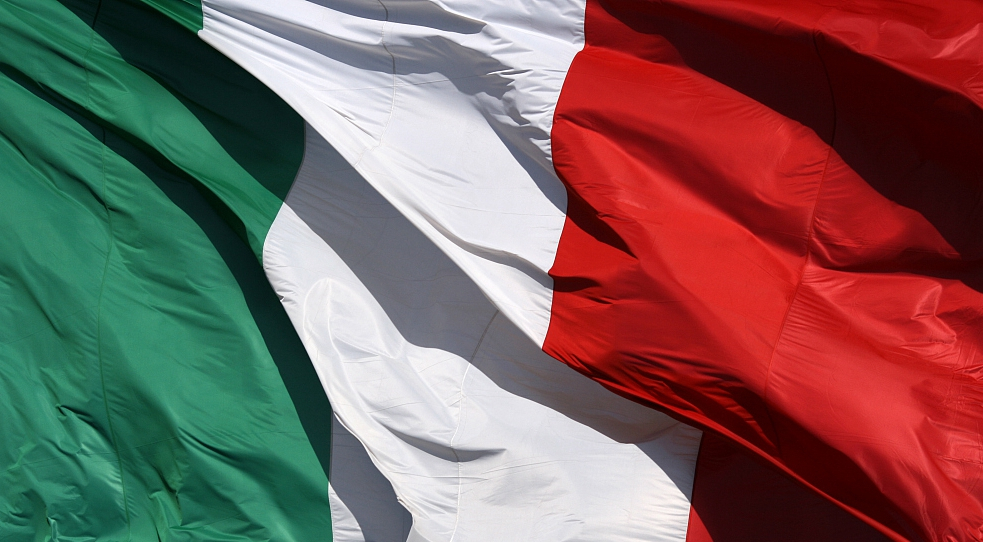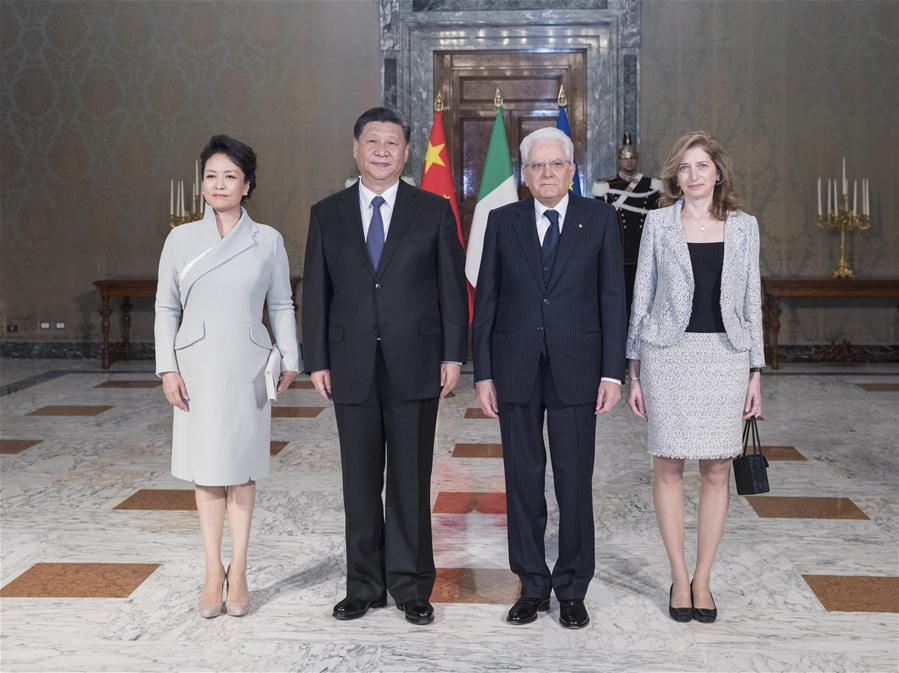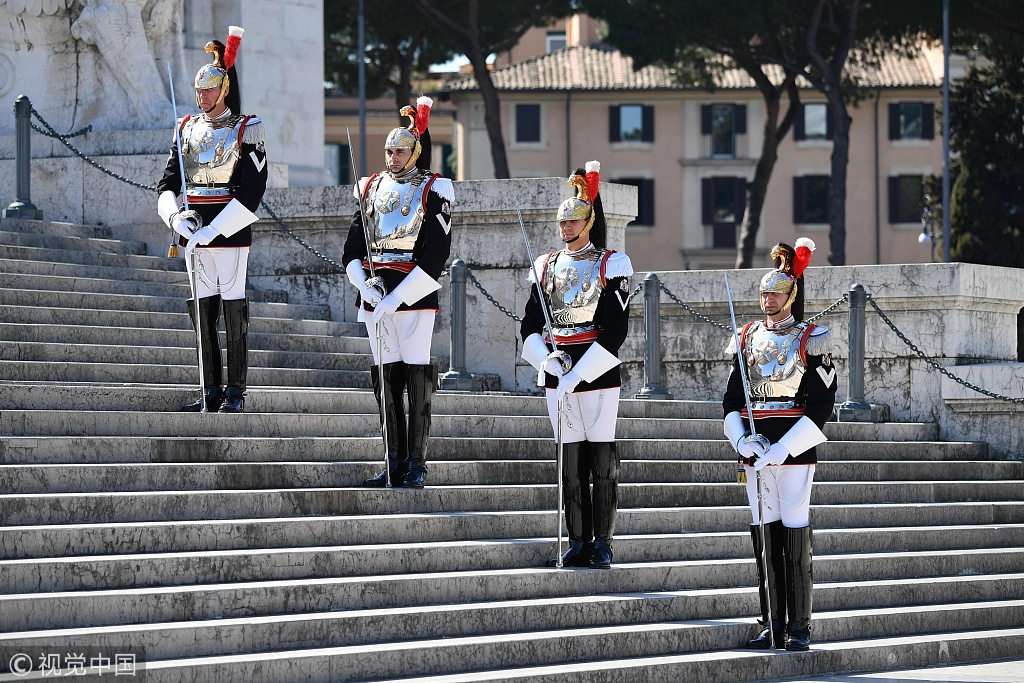
Opinion
10:05, 24-Mar-2019
Win-win mentality is not impossible in Europe
Adam Garrie

Editor's Note: Adam Garrie is director of the UK-based global policy and analysis think tank Eurasia Future and co-host of talk show "The History Boys." The article reflects the author's opinion and not necessarily views of CGTN.
In the deeply controversial context of the 2003 Iraq War, then U.S. defense secretary Donald Rumsfeld suggested that the traditional powers of Europe represented an "old Europe" that had outlasted its geopolitical significance.
Even though such a statement was itself the product of an “all or nothing” zero-sum mentality, in the years since 2003, much of Europe has, in fact, become overly inward-looking, economically complacent and politically unimaginative.
And yet, there are subtle shifts in this paradigm that are becoming ever easier to see. While Italy only became a modern United State in the 1860s, the long history of the Apennine Peninsula is one that has characteristically embraced an outward mentality, not least because Italian geography has compelled the peoples of Italy to do so.
Today, both Italians and Chinese are recalling the trading journeys of Marco Polo who traversed the old Silk Road from the Republic of Venice to the Great Yuan.
As China was among the most innovative societies of the era and as Venice was among the most advanced trading and shipping societies of the time, both sides benefited from the exchanges of the 13th and 14th centuries and beyond.

Chinese President Xi Jinping and his wife Peng Liyuan pose for a group photo with Italian President Sergio Mattarella and his daughter Laura Mattarella in Rome, Italy, March 22, 2019. /Xinhua Photo
Chinese President Xi Jinping and his wife Peng Liyuan pose for a group photo with Italian President Sergio Mattarella and his daughter Laura Mattarella in Rome, Italy, March 22, 2019. /Xinhua Photo
Since the days of the old Silk Road, mankind has invented powerful mechanized ships, trains and trucks, and has taken to the skies. Likewise, today's rule-based trading order helps to ensure an equal footing for various trading partners across the world.
And yet, the economic dynamism and cross-cultural enlightenment that was made possible by the Silk Roads of the past is today at long last being revived by the Belt and Road Initiative (BRI).
While Italy is not the first European Union member to join the BRI, it is the largest thus far and one with unique connections to China over the centuries. As such, the visit of Chinese President Xi Jinping to Italy is symptomatic of China-Italy relations coming full circle and reviving the spirit of ancient trade within the rule-based framework of modern-day win-win initiatives.
There has been a palpable fraternal warmth that has characterized Xi's visit to Italy. This makes it clear that “old Europe” is ready for something new.
Economically, it makes good sense for a large European country like Italy to join the BRI. Italy produces unique items ranging from luxury cars and motorcycles to fashion and sought-after agricultural products that Chinese consumers are deeply attracted to.

Presidential Honor Guards of the Reggimento Corazzieri wait for the arrival of Chinese President Xi Jinping to lay a wreath at the Altare della Patria monument in Rome, Italy, March 22, 2019. /VCG Photo
Presidential Honor Guards of the Reggimento Corazzieri wait for the arrival of Chinese President Xi Jinping to lay a wreath at the Altare della Patria monument in Rome, Italy, March 22, 2019. /VCG Photo
The exporting of ever more Italian products to China will be good for Italian workers and businesses whilst the BRI would give Italian consumers further access to unique Asian products not only from China but from China's multiple Asian Belt and Road partners.
Specifically, the Pacific to Afro-European connectivity that has been made possible as a result of the China-Pakistan Economic Corridor will allow a steady stream of goods to flow in a seamless manner between the Asia-Pacific region and the Mediterranean.
As Italy is located at the center of the Mediterranean, it is fitting that the land of Marco Polo can today hold the potential of being the cornerstone of BRI connectivity in Europe.
Beyond this, Italy's enthusiasm for the BRI makes it clear that far from being a zero-sum continent, win-win developments are indeed possible in the Europe of the 21st century.
Of course, there will be some voices of pessimism attempting to muffle the goodwill that is being achieved between China and Italy.
This is why it is all the more important to fight the pessimism of the recent past with a spirit of forward-looking optimism that is a crucial component of the BRI mentality.
(If you want to contribute and have specific expertise, please contact us at opinions@cgtn.com.)

SITEMAP
Copyright © 2018 CGTN. Beijing ICP prepared NO.16065310-3
Copyright © 2018 CGTN. Beijing ICP prepared NO.16065310-3